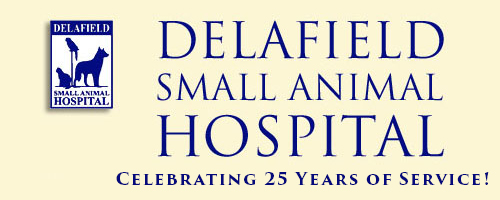Library
-
The diaphragm is the muscular partition that separates the abdomen and the chest. Tearing or disruption of this thin muscle is called a diaphragmatic hernia or diaphragmatic rupture. The most common cause of diaphragmatic hernia is blunt force trauma.
-
E-cigarettes are battery-operated devices used to create and inhale an aerosol composed of nicotine, flavorings, and other chemicals. If a companion animal ingests an e-liquid, signs of nicotine poisoning occur rapidly. The nicotine associated with e-cigarettes, even without tobacco, poses a serious health threat to dogs and cats.
-
Eclampsia in cats is a rare emergent condition of hypocalcemia that generally occurs one to four weeks after giving birth but can occur before. Risk factors include a poor diet, abnormal parathyroid gland, and calcium supplementation during pregnancy. Signs of eclampsia start as restlessness, panting, and stiffness and can progress to disorientation, tremors, inability to walk, and convulsions. Treatment includes intravenous fluids, careful intravenous calcium supplementation, and other supportive medications followed by oral supplementation and weaning kittens as soon as possible or supplementing their diet with milk replacer.
-
Emergencies arise unexpectedly, and it is important to stay calm. After realizing what has occurred, it is important to contact your veterinarian to provide the best chance for a successful outcome. Once you have received initial instructions, it is important to transport your cat to your veterinarian for a complete examination as soon as possible.
-
Congestive Heart Failure in Dogs
La insuficiencia cardiaca es la incapacidad del corazón para mantener un aporte de sangre suficiente para satisfacer las necesidades del organismo. Una insuficiencia cardiaca suele reflejar un fallo del músculo cardiaco (insuficiencia miocárdica), que puede afectar al ventrículo izquierdo o al derecho.
-
Heartworm Disease in Cats
El gusano del corazón es un parásito de la sangre llamado Dirofilaria immitis que reside en el corazón o en los grandes vasos sanguíneos de los animales infectados.
-
Many liquid potpourri products and essential oils are poisonous to cats, including oil of cinnamon, citrus, pennyroyal, peppermint, pine, sweet birch, tea tree (melaleuca), wintergreen, and ylang ylang. Both ingestion and skin exposure can be toxic.
-
Ethylene glycol, a sweet-tasting, odorless liquid, is the active ingredient in antifreeze. Ethylene glycol can also be found, in lower concentrations, in some windshield de-icing agents, hydraulic brake fluid, motor oils, solvents, paints, film processing solutions, wood stains, inks, printer cartridges. Ethylene glycol is poisonous to cats; immediate treatment is essential.
-
All glues containing isocyanate and diisocyanate can expand. Pets exposed to a very small amount of wet or liquid expanding glue may consume enough product to be problematic. Foreign body obstruction due to a mass of expanded glue in the stomach is the most common outcome in dogs ingesting expanding wood glues. After abdominal X-rays confirm the presence of a glue mass and obstruction, surgery is required to remove the mass, or endoscopy in mild cases. The prognosis for recovery from expanding glue ingestion depends on the removal of the mass.
-
Feline idiopathic cystitis (FIC) includes a set of clinical signs associated with abnormal urination and is the diagnosis when there is no identifiable cause of the clinical signs. Cats often suffer waxing and waning of symptoms such as straining to urinate, blood in urine, and inappropriate urination. Treatment and prognosis are discussed.
